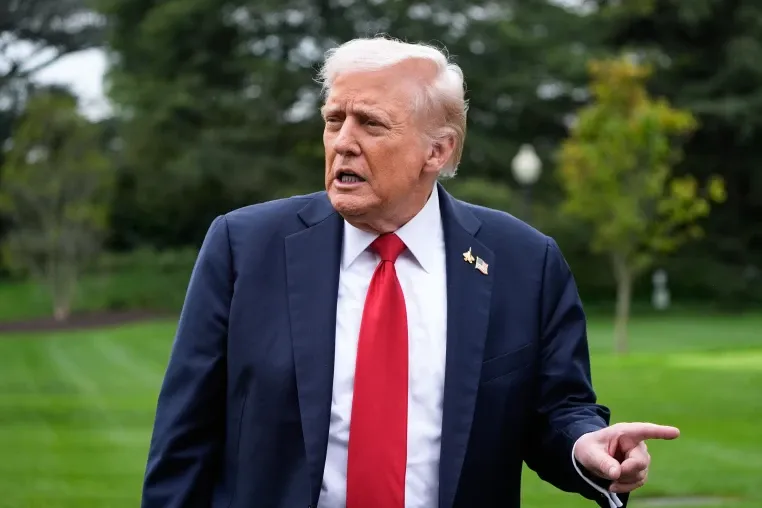New $100K H‑1B Visa Fee Sparks Business Backlash — Will America Lose Its Edge in Tech

President Donald Trump’s proposal to impose a $100,000 fee on H‑1B visa applications has drawn rare and forceful opposition from U.S. businesses. A coalition of major industry groups warns that the move could choke off essential access to global talent, undercut innovation, and damage the economy.
In a letter to the White House, companies that have long relied on skilled foreign workers urged the administration to rethink imposing such a steep cost on the visa system. This pushback reflects deep concern that the changes aren’t just tough — they may backfire.
What’s the $100,000 Fee All About?
In a recent executive proclamation, President Trump introduced sweeping changes to the H‑1B work visa system. Chief among them: a $100,000 fee for visa applications by companies seeking to hire foreign professionals. The administration says it’s meant to “weed out abuse” of the system and push employers to prioritize American talent.
But critics argue it’s a blunt instrument that could do more harm than good.
Business Strikes Back — Why It Matters
Talent Pipeline Under Threat
Leading voices in the tech, retail, and manufacturing sectors fired off a letter to the President, warning that the fee could sever the flow of skilled workers into U.S. companies. Without access to global talent, they say, critical positions—especially in AI, biotech, and engineering—may go unfilled.
Innovation at Risk
The signatories include giants and associations such as the Business Software Alliance, the semiconductor trade group SEMI, the National Retail Federation (NRF), the Entertainment Software Association, and the Information Technology Industry Council. These groups represent firms that depend heavily on high-skilled foreign employees. They argue that imposing a six-figure fee will dampen competitiveness and stifle breakthroughs.
Rare Industry Rebuke
It’s uncommon for business coalitions to publicly oppose a sitting administration’s policy. Their unified stance signals just how high the stakes are. The letter praised some of Trump’s policies but made clear: “Don’t undermine the ability of U.S. employers to recruit, train, and retain top talent.”
The White House Pushback
The administration defended the fee by accusing some employers of exploiting loopholes in the visa system. A White House spokesperson said the measure will reduce abuse and protect American workers, while still supporting access to “top talent.”
From the White House’s perspective, higher costs will discourage bad actors who misuse the visa, and nudge more companies to hire domestically.
Who Stands to Be Hurt — and Why
Tech and Retail Giants
Amazon, Microsoft, Walmart, and others have long used the H‑1B visa to fill specialized roles. If the cost of hiring foreign talent soars, these corporations may rethink expansion—or relocate key operations overseas.
Beyond Silicon Valley
This isn’t just about tech. The increased cost could pinch sectors ranging from health care to finance to manufacturing. Many advanced fields rely on niche expertise that’s often sourced globally.
Ripple Effects on Innovation
The business groups argue that the fee undermines the administration’s own goals. It could weaken U.S. dominance in AI, hurt efforts to reshore manufacturing, and slow breakthroughs in energy and biomedicine—all areas the administration has touted as priorities.
Employee Pressure and Talent Exodus
Notably, after the $100,000 fee was announced, some major companies urged H‑1B visa holders to stay in the U.S. rather than consider relocating abroad. The move underscores how disruptive the change could be to individuals’ careers and life plans.
For many foreign professionals, the U.S. has been a destination for growth opportunities. But drastic policy shifts like this can erode confidence and push talent toward friendlier immigration regimes elsewhere.
What Happens Next?
Will the Fee Survive?
In their letter, industry groups requested the administration reconsider the approach or find alternative reforms that don’t so heavily burden employers. Whether the White House heeds the warning remains to be seen.
Possible Legal or Legislative Pushback
It’s possible that Congress or the courts may intervene if the fee proves overly burdensome or is implemented without proper legal foundation.
The Talent Equation
If the new fee is enacted as planned, U.S. companies may find themselves competing on a lopsided playing field—losing ground to nations offering more welcoming immigration regimes. The innovation boom that fueled sectors like Silicon Valley could stall.
Conclusion
Imposing a $100,000 fee on H‑1B visa applications isn’t just a bureaucratic tweak — it’s a wager. It bets that the U.S. can remain a global innovation hub while making it dramatically more expensive to bring in foreign experts. The rare, coordinated backlash from major industries suggests that many believe this gamble could backfire.
Whether the administration adjusts course will be among the most closely watched policy tests in the intersection of business, immigration, and global competitiveness.
